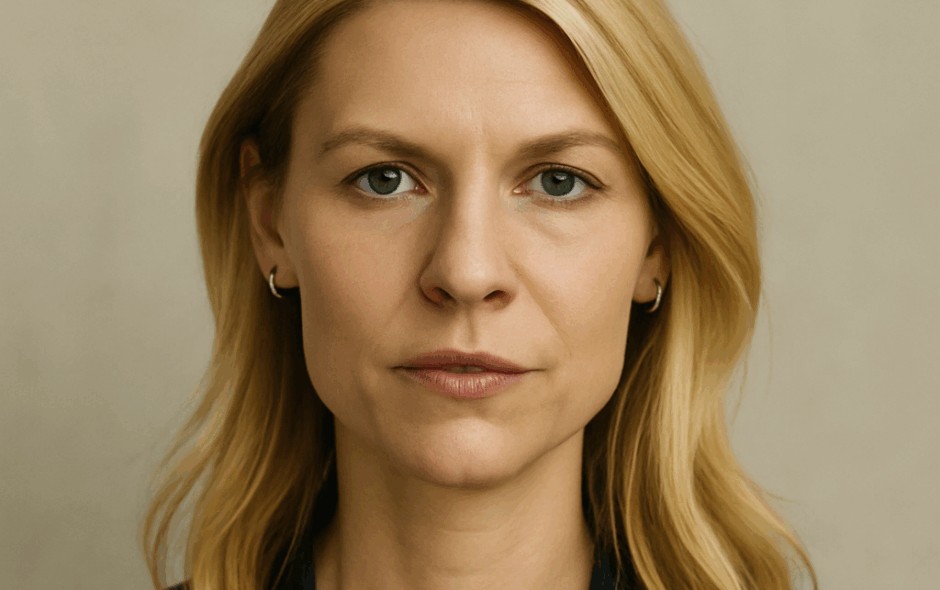Claire Danes has spent nearly three decades proving that some actors don’t perform emotion so much as inhabit it. From the moment she arrived in the cultural imagination as the awkward, restless Angela Chase in My So-Called Life, Danes has carried a rare quality: the ability to make the camera feel like an X-ray. She doesn’t simply play characters. She reveals their inner weather, their restless shadows, their flickers of doubt and longing, with a clarity that has only sharpened with time.
Her career has never followed a predictable arc. Danes was never interested in being Hollywood’s ingenue, or its glamour queen, or its franchise star. She came of age in an era when young actresses were often given only one path, and she ignored it entirely. Instead she built a résumé out of characters who were complicated long before the term became fashionable. Juliet in Romeo + Juliet, with her trembling sincerity and modern ache. Temple Grandin, whose brilliance and specificity she captured with almost uncanny intimacy. Carrie Mathison in Homeland, forever balancing genius, instability, moral certainty, and emotional ruin in equal measure. Each performance carried the same signature: nothing was indicated, nothing was pushed. What she felt seemed to bloom from somewhere deep in her bones.
What makes Danes so compelling is not just her skill but her instinct. She gravitates toward characters who exist under pressure—women dealing with grief, panic, suspicion, brilliance, or a past they can’t quite outrun. There is a transparency to her work, a willingness to be seen without polish, that gives even her quietest moments a voltage few actors can match. She never settles for easy sentiment or theatrical flourish. She always chooses the more interior truth.
Her newest work in The Beast Within draws on that gift in a devastating way. She plays Aggie, a Pulitzer Prize–winning author suffocated by grief after the loss of her son, a woman whose talent has become trapped behind a trauma she cannot name without trembling. Danes gives Aggie a stillness that reads like shock, a precision that reads like control, and a brittleness that threatens to crack every time she lets her guard drop. As Aggie edges toward a dangerous collaboration with her neighbor Nile, Danes crafts a performance that is both tightly restrained and emotionally porous. She shows us a woman in recovery and relapse all at once.
There is a through-line in all of Danes’s work: a belief that authenticity matters more than likability, and that complexity is far more interesting than ease. She approaches her characters with the curiosity of a patient observer and the rigor of someone who has never coasted on charm. Even when she plays stillness, she plays it with movement underneath, as though her characters’ thoughts might break the surface at any moment.
In an industry that rewards noise, Danes has made a career out of nuance. There is power in her quietness, danger in her pauses, exhilaration in the moment her characters allow themselves to be fully seen. Few actors convey vulnerability without weakness, intelligence without smugness, fragility without melodrama. Danes does it instinctively.
As she enters this new phase of her career, she remains one of the rare performers whose presence alone signals depth. You don’t watch Claire Danes for the spectacle. You watch her for the truth—whatever shape it takes, however raw, however unsettling, however beautifully human.




